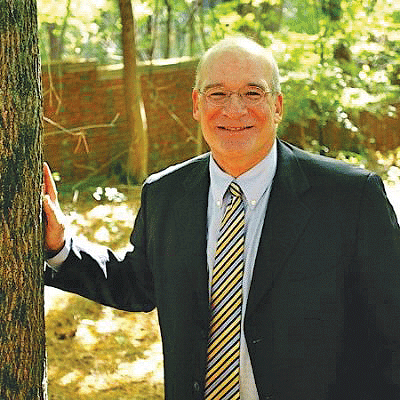Tepper Lectures on Private-Land Preservation in Patagonia, Chile

Henry Tepper focused on both environmental efforts to conserve land in Patagonia, Chile and the impacts of these efforts on the area. Tepper also spoke about a Valle, California property that Colgate students will travel to in January.
On Friday, November 3, Colgate welcomed Henry Tepper, alumnus of Cornell University, member of the Tierra Austral Land Trust and active participant in the education of land conservation. ALANA Cultural Center hosted the Environmental Studies Brown Bag event, where Tepper not only focused on Colgate’s involvement in environmental protection, but also on the effects of the efforts in Chile in the sense of “momentum.”
According to Tepper, Chile’s land conservation serves as a marker in the ever-expanding acres of land protected under land trusts, proving to the world that safeguarding land is much easier than initially perceived. To begin, Tepper explained that the six-part strategy employed in Chile involved leadership from the private sector, legal instrumentation, demonstration of conservation projects, enabling legislation, land trusts and financial incentives. Organizations, such as Patagonia Sur, LLC – a company Tepper had once worked for – have refined the idea of a “conservation real estate company” that went directly to landowners and offered tax breaks or even compensation for the preservation of privately-owned land. Such practices found extraordinary success in the United States with over 1,700 land trusts and 56 million acres of land permanently protected through private action. A primary reason companies like Patagonia Sur, LLC find strength in Chile stems from the astounding amount of privately-owned land in the country – around 80%. In fact, according to Tepper, Chile has similarities with our own history with land conservation.
“Chile looks a little bit like the United States did when the private conservation movement took off,” he said.
While the Chilean private lands initiative eventually succeeded in 2006 after a few false starts, many challenges arose after a period of time, such as a lack of stable rule of law in Chile, issues with land titles, socio-economic issues tied to land struggles, the adaptation of English Common Law to Napoleonic Law, lack of financial incentives and lack of attention to the opportunities provided by private land conservation. There was a misplaced emphasis on establishing public parks instead of conserving privately-owned land, even in countries with extensive amounts of private property, acts that, according to Tepper, were like “putting a square block into a round hole.”
However, many major factors made Chile an appropriate country for preserving land, such as the dominant and influential private sector with a booming agricultural industry and expanding export-dependent economy. Tepper’s conversations with the private sector allowed for Chile’s extractive industries of mining, timber and fishing to become more sustainable through private land conservation, ultimately propelling the nation’s ability to meet new sustainability requirements in global markets.
The founding of Patagonia Sur, LLC in 2007 only launched Chile’s conservation efforts farther, as the company ultimately raised $23 million to create a new model for funding private conservation.
The efforts of Patagonia Sur, LLC and other early adopters culminated in the Servidumbre Voluntaria, a conservation easement template that the company used to protect an 8,000-acre Valle, California property. There efforts also resulted in enabling legislation: the Derecho Real de Conservación, which amends Chile’s civil law and adds a new category of private property ownership that allows the right to protect land for conservation values.
For the future, organizations plan to codify and apply new laws by protecting priority landscapes and building conservation infrastructure; the threatened Mediterranean biome located in Chile also requires extreme measures in conservation, as the landscape is only found in five places on Earth.
Even after Tepper’s lecture, first-year Reagan Ferris Whittle remains skeptical towards the concept of private land conservation.
“Of course, one solution won’t work everywhere. Most funding will have to go to adapting to various country laws and regulations,” Whittle said.
Tepper briefly discussed the ability to mesh the efforts in Chile to other countries, but the specifics of adapting law to different continents or even nearby countries were not exactly defined. First-year Jared Rosen also shared Whittle’s sentiment.
“It doesn’t seem like it would be that easy … Maybe for South America, but I’m not sure about other places,” Rosen said.
To aid in efforts to come, Colgate students plan to travel to the Valle, California property in January and experience firsthand the private land conservation projects in Chile. While there, they will learn about practices employed to preserve environments in need.
Contact Miller Downer at [email protected]
Miller Downer is a senior from Natchez, Mississippi concentrating in environmental biology and English. He's previously served as an assistant commentary...






